Covid: Tackling NHS waiting lists 'a gargantuan task'
- Published
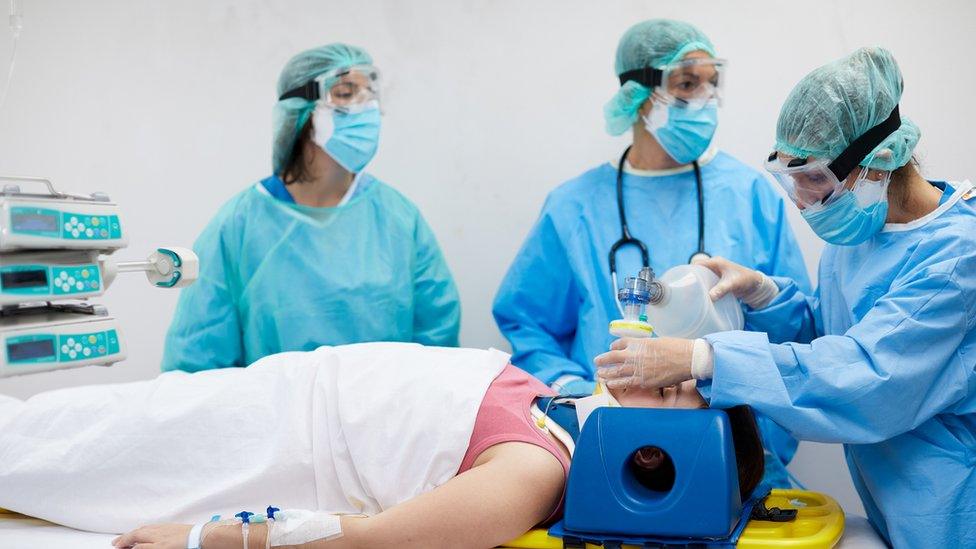
Last month NHS Wales statistics showed more people were on waiting lists than ever before
Wales' new health minister says she faces "a gargantuan task" to tackle "record high" NHS waiting lists caused by the Covid pandemic.
Eluned Morgan has announced an initial £100m to deal with the record backlog.
Latest Welsh government figures show more people than ever - the equivalent of 18% of the Welsh population - are waiting for planned treatments.
There were 568,367 people on waiting lists in March, up 24.4% on the same time last year.
All health boards will get a share of the funding for new equipment, staff and promoting "new ways of working".
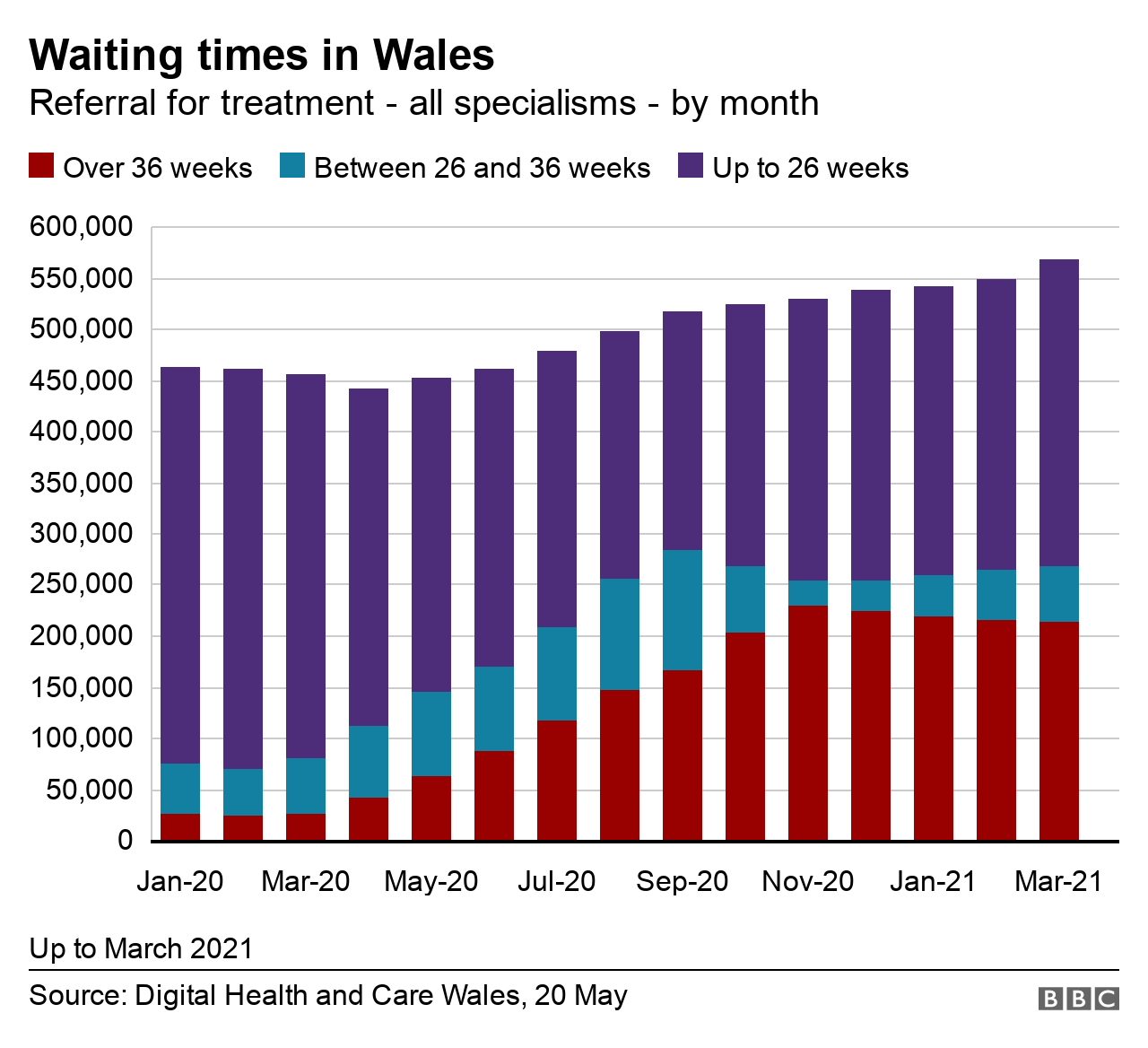
Ms Morgan told Claire Summers on BBC Radio Wales: "I'm very aware of the gargantuan task ahead of me as health minister, and really confronting the NHS.
"We've got to understand that we're in a very unique situation, the pandemic has meant that obviously those waiting lists have really hit record highs and I think we've got to be aware that those people on the front line, the NHS staff, have worked tirelessly through the pandemic and so they're going to need a little bit of time and support to recover.
"I am very aware that there are literally hundreds of thousands of people across Wales who are suffering and are in pain and it is our responsibility to move as fast as we can to try and relieve that suffering.
"But it is going to be, I'm afraid, a task that is going to take a substantial amount of time."
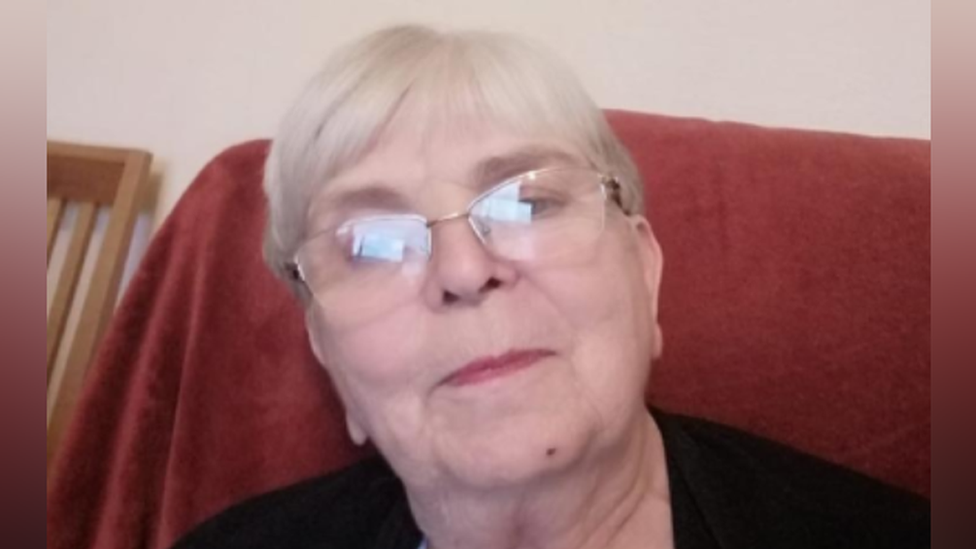
Gaye Moran has been waiting for surgery for over two years and says she is in constant pain
Gaye Moran, from Llandudno in Conwy, has been waiting for hip surgery, despite being on a priority list since December 2018.
She told Claire Summers on BBC Radio Wales: "Sometimes I swear a lot because it hurts so much, sometimes I sit and have a cry.
"But generally I just have to live with it because the only painkillers I can take make me sleep and I really don't want to spend my life sleeping all the time."
Cancer charities have concerns about the impact of the pandemic on waiting times for both patients and staff.
Richard Pugh, head of Macmillan Cancer Support in Wales, told BBC Wales: "The backlog is a worry because people are coming in to the system.
"These incredible staff are fatigued. We weren't in the best place with cancer before this. The complications are that more people are coming in and the system can't cope.
"We warned about this months ago. The key thing is supporting the staff but our worry is the new numbers coming in."
'Staff are fatigued'
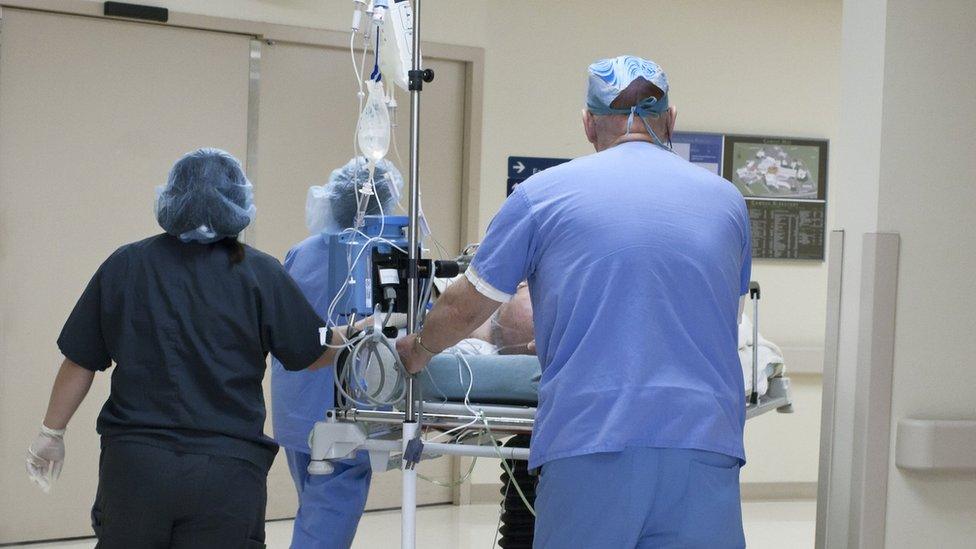
Staff are "exhausted", says NHS Wales boss Dr Andrew Goodall
Vice President for the Royal College of Physicians in Wales Dr Olwen Williams also said she was concerned about staff.
She said: "I think this isn't necessarily about the money... we welcome this investment, it's about the fact that, firstly, we're not out to the pandemic.
"We've had an incredibly difficult year for all our staff across the NHS and they're really fatigued, so it's about actually thinking around how we deal with delivering services in that context."
She said a lot of jobs had not been filled before the pandemic, adding: "It's really urgent that those jobs are filled, because actually our clinicians do need to actually be able to work in an environment where they've got safe rotas."
Mr Richard Johnson, director in Wales of the Royal College of Surgeons (RCS), said it was important to remember that behind the statistics were ordinary "people waiting in pain and suffering for an operation".
He said the waiting list had to be a priority for the new health minister and Covid-light sites should be introduced across Wales, to ensure patients without the virus could be safely treated.
"This is the best way we can keep treating people who need operations, regardless of future pandemics and winter pressures. However, it requires being open to doing things differently," he said.Tackling NHS waiting lists 'a gargantuan task'
He added: "Although we welcome the additional funding announced, we won't be able to deal with the backlog overnight. It will take many years to achieve, and we need to see sustained investment to increase overall capacity.
"Furthermore, significant changes will be required to how we deliver services in Wales."
How will the £100m be shared?
Cardiff & Vale will get £13m to increase capacity for a range of therapies and diagnostics, including staff recruitment and two new mobile theatres.
Powys will get £2.5m to transform patient services and increase capacity for a range of services.
Cwm Taf Morgannwg will use £16m for recruitment and investment in surgical and diagnostic capacity.
Hywel Dda is to receive £13m to improve capacity for planned care, including hospital redesign and investment in diagnostics.
Aneurin Bevan will get £17m for projects to increased capacity in planned care, diagnostics, therapies and mental health.
Swansea Bay will use £16m to increase capacity in a wide range of areas, including theatres, recruitment and ophthalmology.
Betsi Cadwaldr will get £20m to increase capacity in planned care, cancer, dental, diagnostics and endoscopy
Velindre will use £2.5m to increase capacity for radiotherapy.
The initial £100m funding was announced in March by Vaughan Gething, the previous health minister, ahead of the Senedd election.
During the subsequent election campaign, Labour promised £1bn would be spent over a number of years on an NHS recovery plan.
NHS Wales chief executive Dr Andrew Goodall had previously warned staff were "exhausted" and said tackling the NHS could take "years to recover".
What else do the latest figures tell us?
Of the 568,367 on the list in March, 216,418 had been waiting more than 36 weeks - 38% of the total number waiting, more than seven times more than during the same period last year.
However there has been slight improvement in the number of patients waiting the longest, with 1,237 fewer patients having waited more 36 weeks for treatment in March compared to February.
- Published22 April 2021
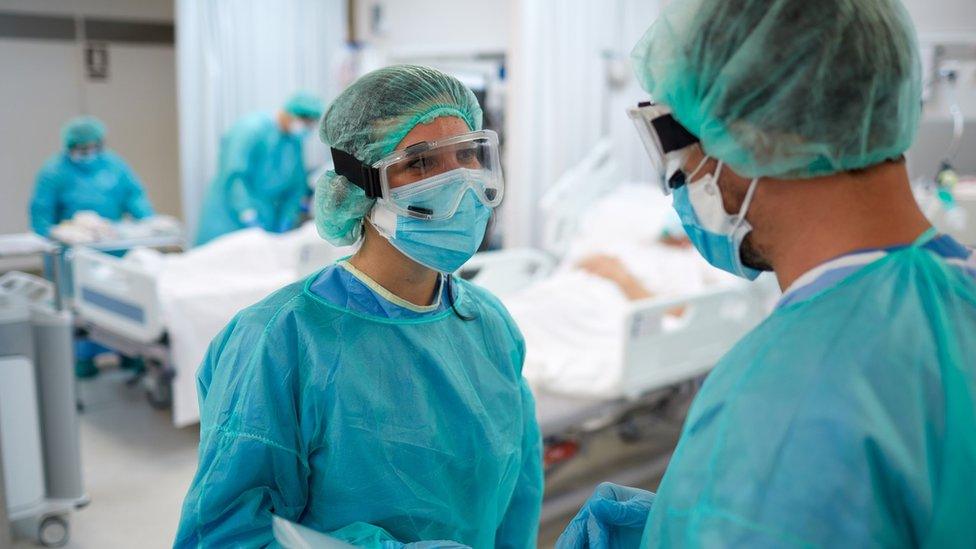
- Published22 March 2021

- Published19 November 2020
